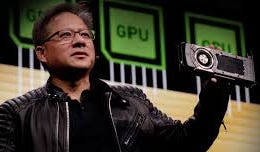DeepSeek AI - when events can only be understood by historical analogy.
Some events are potentially so disruptive that only remote and unrelated stories from history can help us to imagine a suddenly unclear future.
It is telling that the analogy that people immediately reached for when hearing that DeepSeek, an Artificial Intelligence large language model (LLM) company from China, could do what its American ‘rivals’ could do at a fraction of the cost, using a fraction of the energy and apparently employing a fraction of the staff, was the revelation of the USSR launching the Sputnik satellite in 1957.
The USA was the big winner from the second world war, defeating Germany and Japan. It emerged with half the world’s GDP and a third of its money, and rightly felt itself to be the guardian of freedom, security and democracy around the world. Its authority was backed by the atomic bomb and, for a time, it was the only country with nuclear weapons.
America’s well-deserved yet slightly smug supremacy came to a precipitous end in October 1957 when the Soviets launched Sputnik, the world’s first artificial satellite. The USSR got the bomb in 1949, but Sputnik showed that somehow the reds were in fact ahead of the yanks technologically. All the assumptions about the superiority of the free world over the communist one were immediately called into question.

The US stock market is in many ways a reflection, if not the principle driver, of the US economy. The performance of the ‘Mag7’ tech stocks has been astounding, led in the last few years by Nvidia (ticker NVDA), the main chip provider for the AI revolution.
The market turmoil on Monday 27th January following the DeepSeek announcement over the weekend is clear proof that, despite the cope from tech bros and Wall Street analysts, something very big has just happened.
The Sputnik-DeepSeek analogy reveals an implicit cold war mentality, with China now playing the role of the Soviet Union. The affront to the free market way of doing things is apparent - almost immediately accusations emerged that DeepSeek had extra secret Nvidia chips (50,000 of them apparently), or that it had stolen code and data from America’s OpenAI, or that DeepSeek was a tool allowing the Chinese communist party into your computer and so on.
Maybe the $5mm budget for DeepSeek is a fake number. Perhaps the tech spend was higher (although as an open-sourced piece of technology, anyone can test the capabilities of DeepSeek so the accusation of secret high-powered chips driving the whole project ought easily to be checked). Given how LLM’s scrape the internet for data without a care about copyright or ownership, accusations of theft are a bit pot calling the kettle black. Pick a side.
The shock is of course that China, a country whose industry is often thought to be good at copying things rather than inventing things, might actually not only be good at innovation, but in this instance, better at it than America. If technology is the key battle ground of the future, and with President Trump in the White House, the cold war vibe has just been ratcheted up to a new level.
The US large language model path has been a bit like America’s approach in the Vietnam war - lots of expensive kit, including chips from Nvidia, massive data centres using vast quantities of energy, and a huge number of highly qualified tech bros in California. AI spend amongst the big tech companies is pushing $1 trillion in the past 3-4 years, and until last Monday, it looked like they were building a classic ‘moat’ driven by high entry costs and the subsequent ability to charge high subscription and service fees as a result.
But the Mag7’s B52 bombers have just been confronted by a bunch of fellows in black pyjamas jumping out of an interconnecting network of tunnels built by the Viet Cong. By taking a software not a hardware approach, and by setting standards that are good enough if not as perfect as their US counterparts in terms of search results but self-correcting in a very smart way, DeepSeek’s AI model can apparently achieve similar results to the likes of ChatGPT at a fraction of the cost, both in terms of development and energy usage.
The real revolution though is that DeepSeek is an open-source technology which anyone can download, examine, tweak and then use, apparently without having to invest mega-bucks in hardware and energy costs. It may be the case that DeepSeek is a bit shifty when it comes to discussing events in Tiananmen Square, but that misses the point - you can take its code, build your own chat-bot, then programme it with whatever biases you like.
What this means is that the intangible asset (intellectual property) value, as well as the potential earnings streams of US big tech, as reflected in their stratospheric equity valuations, are now not justifiable in the same way they perhaps were even just last week. Clearly it may not all be bad news. Morgan Stanley’s equity analysts are suggesting for example that Apple (ticker AAPL) may be a winner from all this, as AI shifts from the data centre to the hand-held device1. AAPL is pretty fully valued already, but let’s see.

If a software-not-hardware approach really is the future of AI, then the full implications of what has happened in the last week or so will take some time to be digested, both by markets and the global economy more broadly. It is in fact probably impossible at this stage to be certain what the new path will be, hence everyone grappling with understanding the event through ostensibly unrelated historical comparisons.
In the spirit of abstract historical analogies, one final one would be to compare the implications of DeepSeek with those of Martin Luther’s momentous nailing of his 95 theses to the door of Wittenberg Cathedral in 1517, an event, apocryphal or not, that is often credited with kicking off the reformation and launching the protestant church in all its many branches, sects and creeds.
Although he might not fully have realised it at the time, by insisting that Christian faith could be expressed sola scriptura (only through the word - ie the bible), Luther elevated the role of the individual in the relationship between man and god to a philosophical level which could arguably mark the starting point of modern ideas of democracy, capitalism and individual choice.
While Luther’s focusing on the word rather than the institutions of the Catholic church makes a nice metaphor for DeepSeek’s focus on coding rather than expensive chips and data centres, the real point is that Luther’s move was highly democratising, much like DeepSeek’s open-source approach.
Despite believing in faith through the word of the bible alone, Luther also seemed to believe his interpretation was the right one. What followed though was a profusion of different interpretations of what Protestantism actually meant. This probably reached a high point during the English revolution in the middle of the seventeenth century, with a list of religious movements including the baptists, the quakers, the seekers, the ranters, the levellers, the diggers, the fifth-monarchy men, the old muggletonians and so on…
If AI is going to be software-based not hardware-based, it is likely that its future will not only be more democratic (due to the lower entry barriers) but also more widespread and therefore potentially more disruptive. Analysing demand is the fun and sexy side of financial modelling. The supply side is often less well understood, and therefore less well investigated, but this is where the future of AI will emerge. The market is telling us that the future has suddenly become far less clear. Interesting times, as the Chinese might say.
Michael Acton, Tim Bradshaw, DeepSeek gives Apple hope of being an AI ‘winner’, Financial Times, 31/01/2025.


